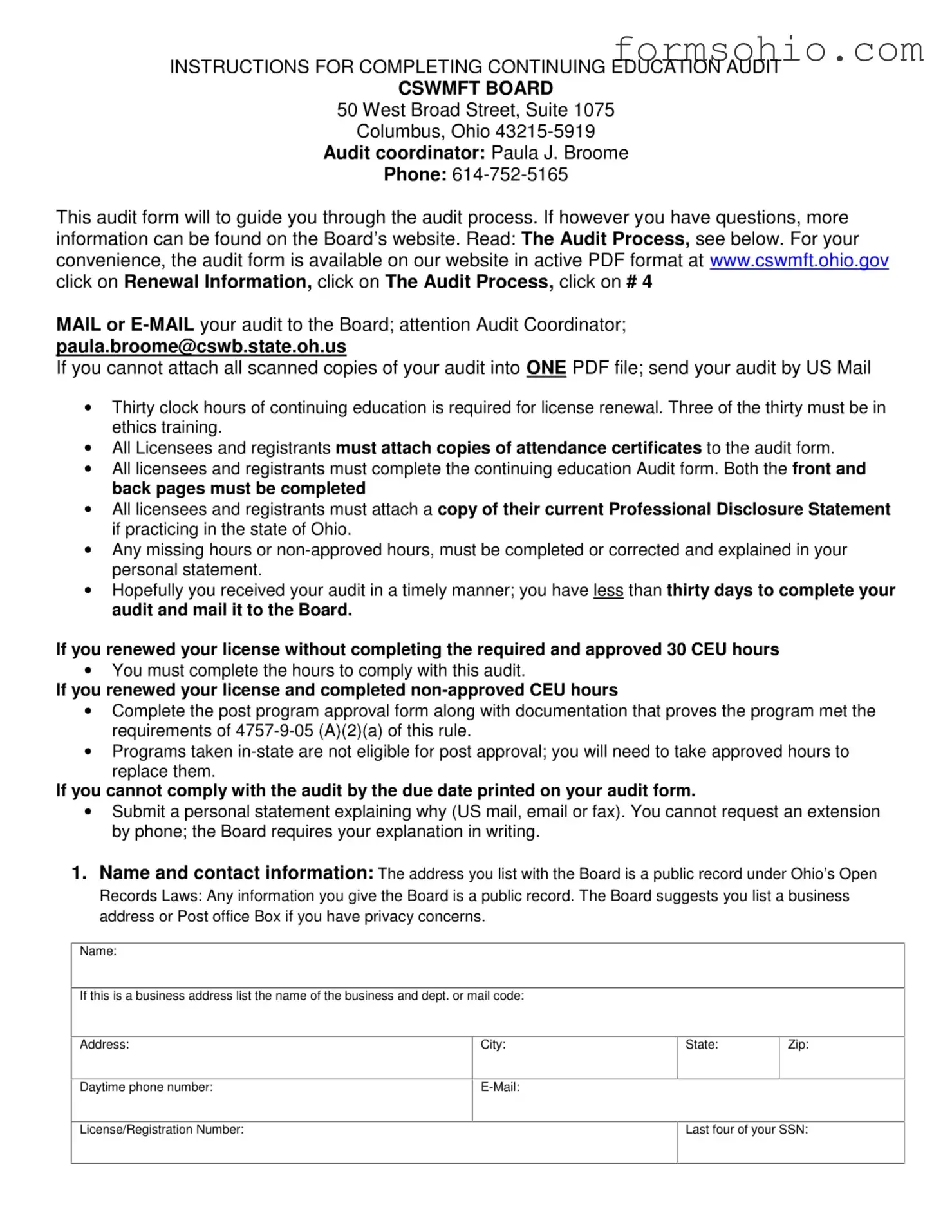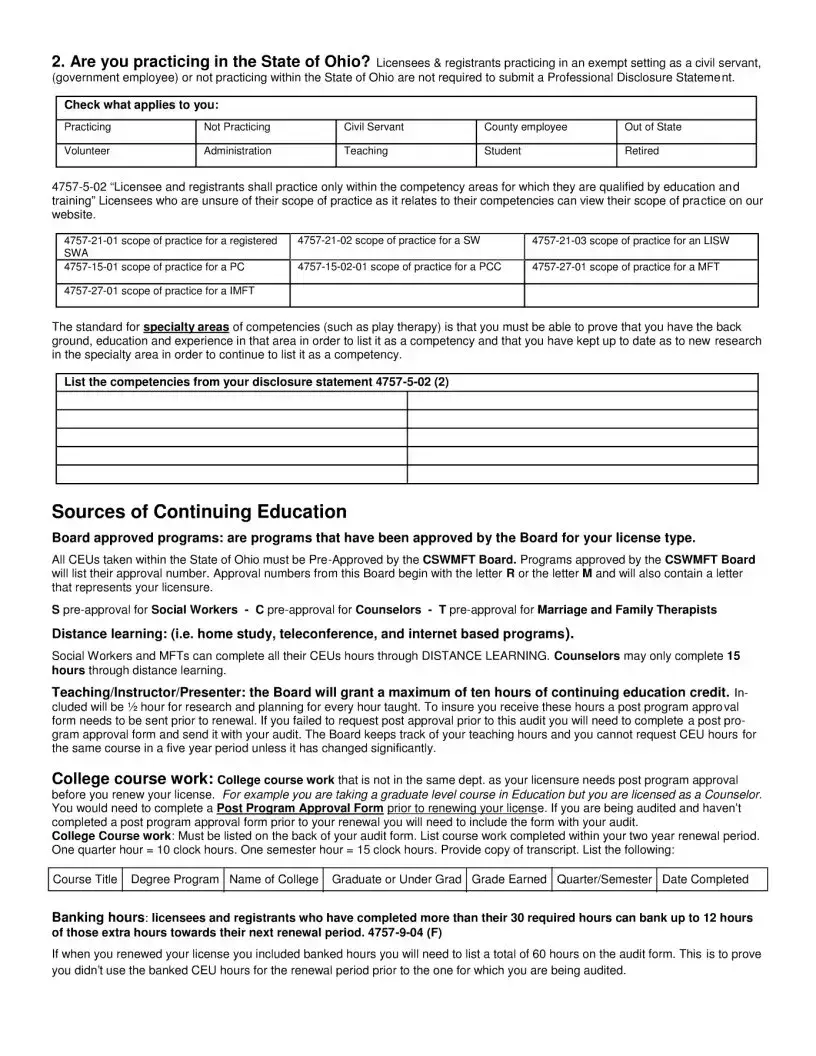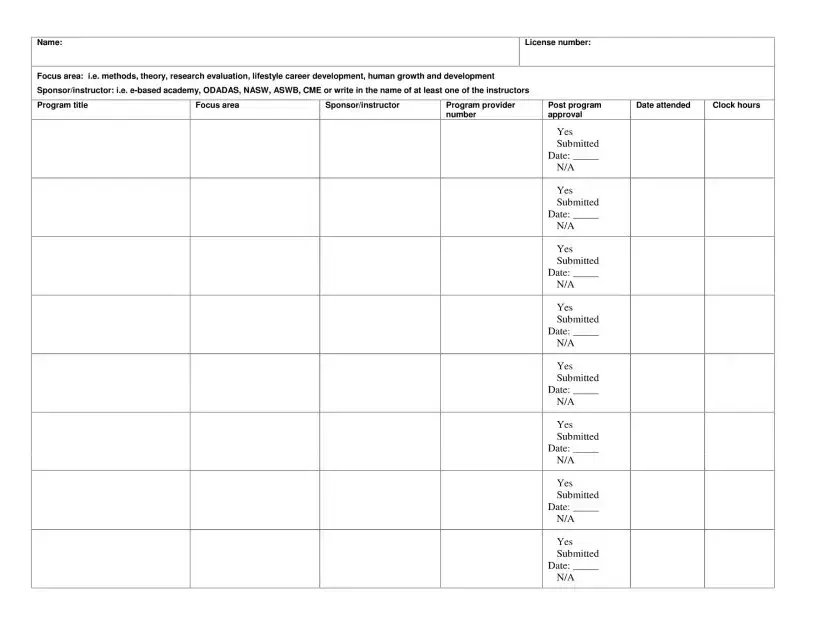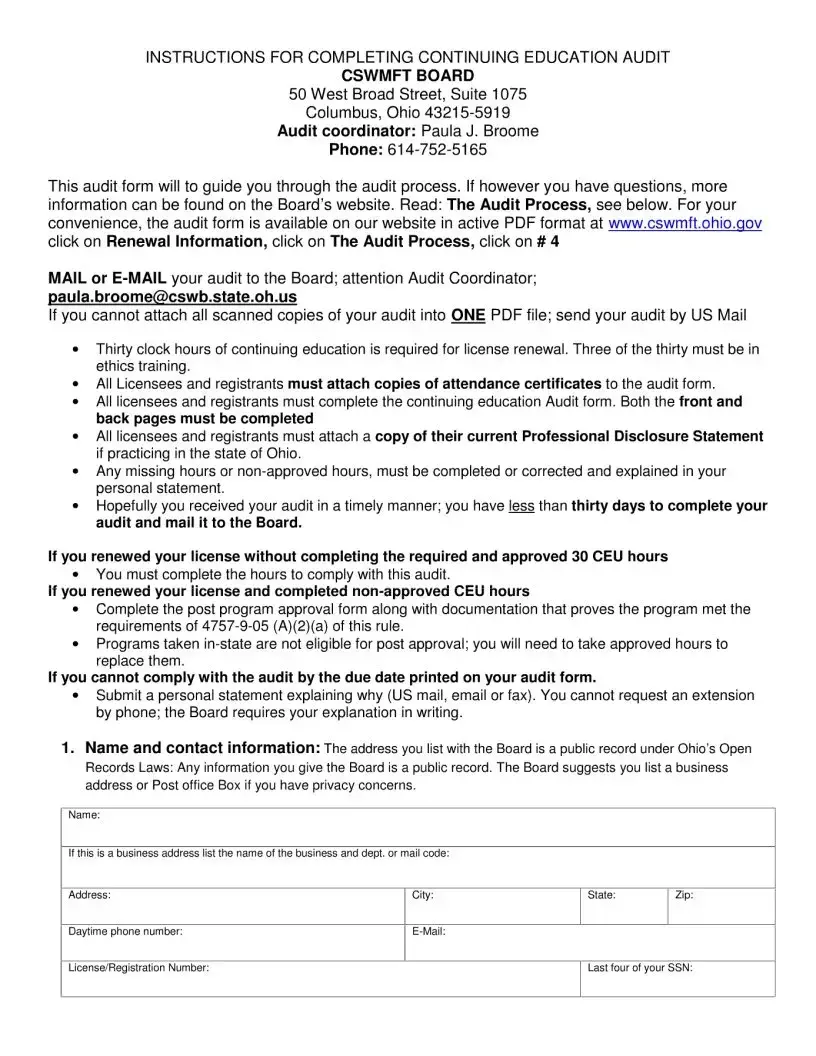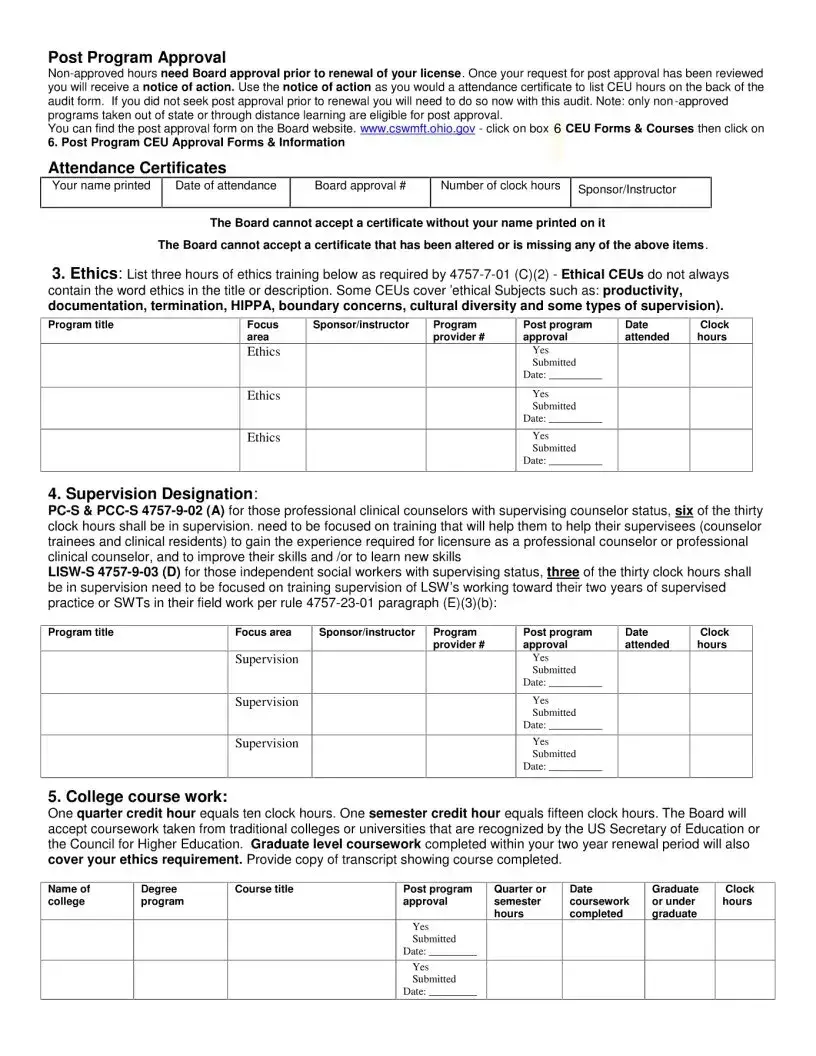Completing the CSWMFT Ohio Gov form can be a straightforward process, but many people make common mistakes that can lead to complications. One major error is failing to attach the required copies of attendance certificates. All licensees and registrants must include these documents with their audit form. Without them, the Board cannot verify your completed continuing education hours, which may result in delays or issues with your renewal.
Another frequent mistake is neglecting to complete both the front and back pages of the audit form. Some individuals may think that just filling out one side is sufficient, but this is not the case. The Board requires comprehensive information on both pages to ensure a smooth audit process. Skipping this step can lead to unnecessary back-and-forth communication with the Board.
Many people also overlook the importance of including a current Professional Disclosure Statement if they are practicing in Ohio. This document is essential for the Board to understand your professional context. Failing to provide it can cause your application to be incomplete, which can delay your license renewal.
Some licensees make the mistake of submitting non-approved continuing education units (CEUs). If you renewed your license using hours that were not pre-approved by the Board, you must correct this by completing the necessary post program approval form. This form, along with documentation proving that the program met the Board's requirements, is crucial for compliance.
Additionally, individuals sometimes miscalculate their completed CEU hours. It’s important to ensure that you have met the required thirty clock hours, including three hours specifically in ethics training. If you have missing or non-approved hours, you must explain these discrepancies in your personal statement. Failure to do so can lead to complications in the audit process.
Another common oversight is not submitting a personal statement when unable to comply with the audit by the due date. The Board requires written explanations for extensions, and many mistakenly think they can request an extension by phone. This misunderstanding can lead to penalties or denial of your audit.
Lastly, some licensees forget to list their competencies accurately. The Board expects you to provide proof of your qualifications in the areas you practice. If you cannot demonstrate your background and ongoing education in a specialty area, you may not be able to list it as a competency. Being thorough in this section is vital for maintaining your license.
